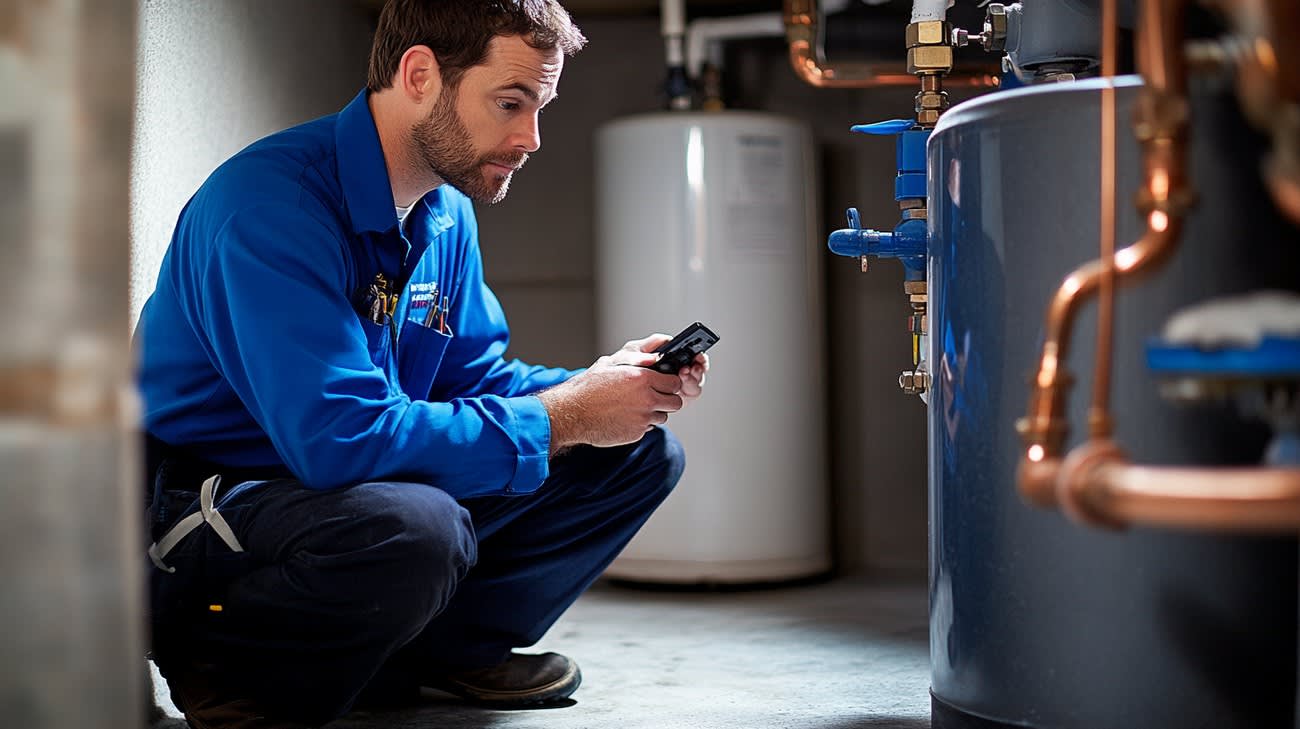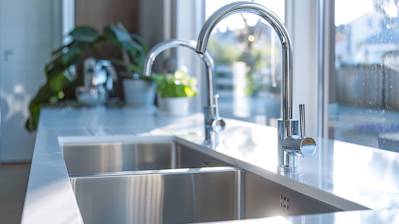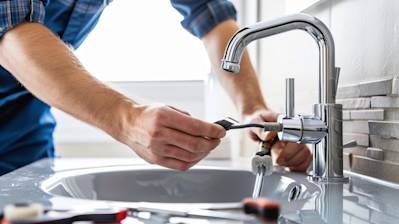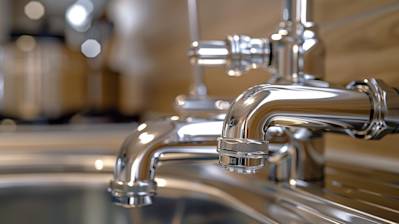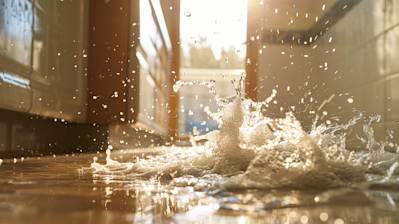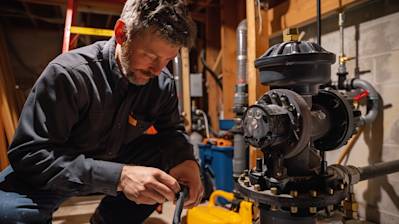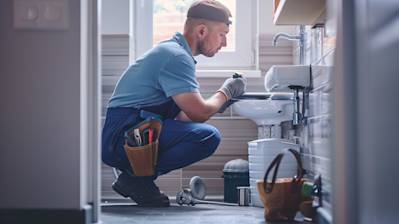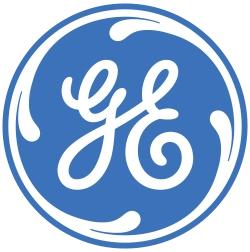We live in an era filled with modern conveniences that make our lives comfortable and hassle-free. One such essential convenience is our home’s plumbing system. Unfortunately, not everybody pays due attention to this crucial part of the residence until some symptoms of malfunction occur. This critical oversight is where the importance of a plumbing inspection comes in. In understanding more about inspections, you will learn to value it as an essential preventive measure to costlier issues later on.
What is Plumbing Inspection?
Plumbing inspection is an in-depth evaluation of the entire plumbing system in a property. It involves inspecting pipes, fixtures, water heaters, drains, sewage lines, and more. A certified plumber carries out the assessment to diagnose current issues and anticipate future problems. By doing so, you're ensured of a seamless functioning plumbing system, saving you from potential significant expenses that come with plumbing emergencies.
Why You Need a Plumbing Inspection
Identify Plumbing Issues Early
Regular plumbing checks can identify potential issues before they spiral out of control. Early detection means significant savings as it prevents substantial damage with costly repairs.
Prevent Health Risks
Broken sewer pipes could lead to a sewage backup, which poses health risks to inhabitants. Regular plumbing inspections can prevent such occurrences.
Improve Water Quality
An unchecked plumbing system could affect your property’s water quality. Leakages and rust can contaminate your water supply. Regular inspections can help you maintain a clean and safe water supply.
Pre-purchase Plumbing Inspections
If you're in the process of purchasing a property, a plumbing inspection is paramount. Here's why:
- Unveil hidden issues that may not be evident during a routine home inspection.
- Provides accurate cost estimates for potential future plumbing repairs.
- Helps in renegotiating the property price or requesting the current owner to handle the repairs before closing the deal.
What A Typical Plumbing Inspection Covers
Let me now take you through the critical components of a plumbing inspection.
Visual Inspection
This preliminary activity involves checking various elements, including:
- Exposed pipes for signs of corrosion
- Fixtures, sinks, and tubs for functionality
- Toilets for leaks and function
Detailed Inspection
Depending on the property and the plumber's expertise, a detailed inspection may involve:
- Checking water pressure
- Inspecting water heaters
- Drain and sewage line check using a video line inspection
How Often You Should Schedule a Plumbing Inspection
While many suggest annual plumbing inspections, it really depends on the age and condition of your home. Here are some guidelines:
- New homes (less than 10 years old): Every two to three years
- Older homes (10-20 years old): Annually
- Properties more than 20 years old: Twice a year
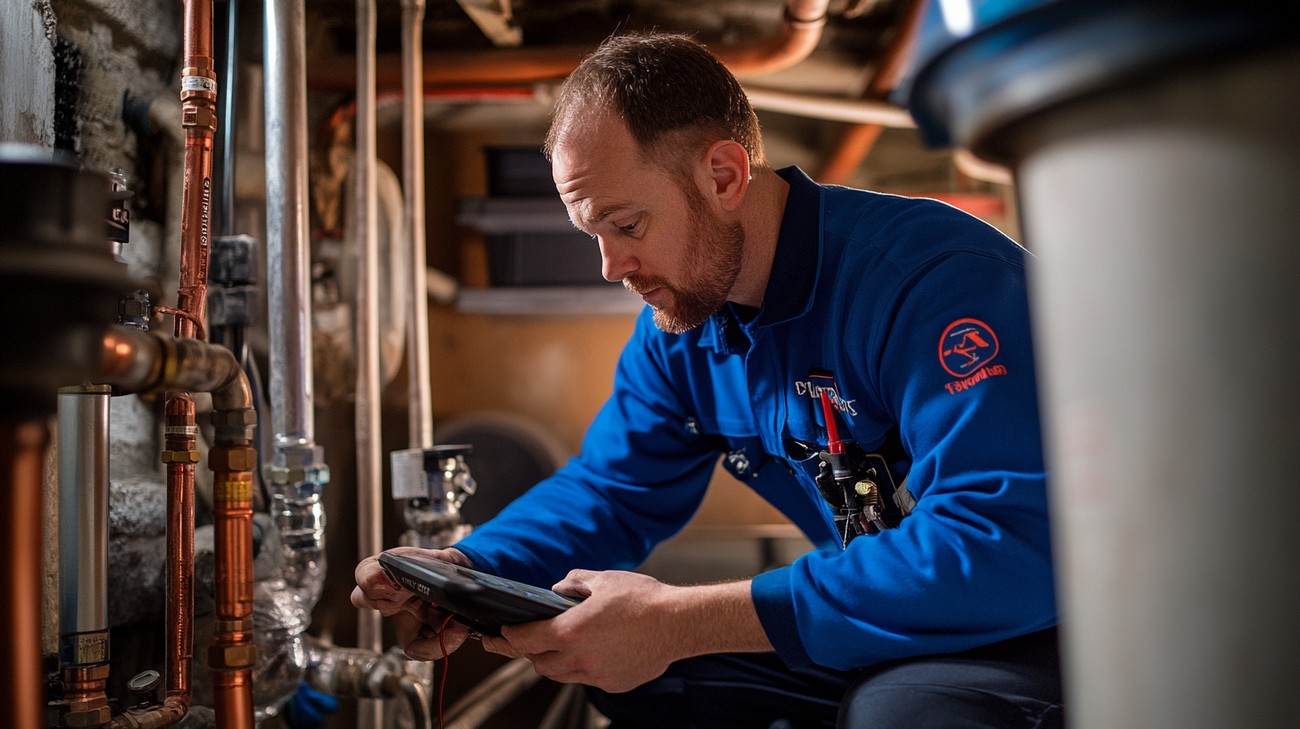
Frequently Asked Questions about Plumbing Inspection
What Does a Plumbing Inspection Include?
A standard plumbing inspection includes assessing pipes and drains, checking faucets and showers, inspecting the toilet and sewage systems, examining water heaters, and looking for leaks or corrosion. The inspector will also check whether water pressure is within acceptable levels and if the sump pump and dishwasher connections are installed correctly. More extensive inspections might include sewer line video inspections or testing drinking water for contaminants.
Why is Plumbing Inspection Important?
Plumbing inspection is critically important to prevent structural damage, preserve the longevity of your plumbing system, and ensure efficient water usage. It can help you identify potential issues early before they turn into costly repairs. Regular plumbing examination also provides assurance of a safe and healthy living environment by preventing issues such as water contamination and mold growth.
Who Should Conduct a Plumbing Inspection?
A certified professional plumber should perform a plumbing inspection. These professionals have the necessary training, experience, and the right tools to properly inspect and diagnose potential issues in your plumbing system. In most regions, plumbers must be licensed to offer such services, so make sure to check on this before hiring a plumber to perform the inspection.
How Regularly Should You Schedule a Plumbing Inspection?
It is generally suggested to have a professional plumbing inspection annually. However, if your property is older, you may require more frequent inspections. Likewise, if you notice any issues like low water pressure, slow draining, or recurrent clogs, it's a good idea to get an inspection right away.
How Much Does a Plumbing Inspection Cost?
The cost of a plumbing inspection can vary widely based on various factors like the size of your home, the complexity of the plumbing network, and your geographical location. On average, a comprehensive plumbing inspection might cost between $150 to $500. Specific services can cost extra — for instance, a video inspection of the sewer lines could add to the total expense.
What's the Difference Between a Plumbing Inspection and a Home Inspection?
A home inspection is a general top-to-bottom review of a home's physical structure and mechanical systems, including the roof, ceilings, walls, doors, windows, and HVAC systems. While it often includes a basic check of the plumbing fixtures, it does not delve as deep into the plumbing systems as a plumbing inspection would. A plumbing inspection is much more thorough and identifies any underlying plumbing issues that a standard home inspection might miss.
What Happens After a Plumbing Inspection?
Once a plumbing inspection is completed, you will receive a detailed report of the findings. This report will include any necessary repairs, replacements, or maintenance tasks. Depending on the inspection results, you may need to schedule follow-up services to address any identified issues.
Can I Conduct My Own Plumbing Inspection?
While you can do a basic visual check of your plumbing system, it's highly recommended to hire a professional for a comprehensive plumbing inspection. Professionals have the necessary tools and knowledge to identify and deal with potential issues that may not be visible to the untrained eye.

Pros of Plumbing Inspection
Understand the Plumbing Condition
A primary advantage of a plumbing inspection is that it allows you to evaluate the current state of the plumbing system. It will lay bare any faults, defects, and maintenance requirements that the system may have. During the inspection, the professionals will check every part of the system, from water heaters to pipes and sewage systems. Thus, you get a complete picture of what's happening behind the unseen parts of your house - your walls and floors.
Avoids Serious Problems
Another significant pro of a plumbing inspection is that it can save you from serious future problems, including water damage and expensive repair bills. It's often the case that small leaks, slowly running toilets, and barely noticeable drips are a sign of a larger issue. These can be detected and fixed early during a plumbing inspection, thus avoiding a potential disaster.
Saves Money
As the old saying goes - prevention is better than cure. Regular plumbing inspections allow for early detection of issues and timely repairs, thus saving huge sums that would otherwise be spent on major repairs if the problems are allowed to fester. It therefore provides long-term savings.
Increases Home Value
If you're planning to sell your house, a recent inspection of the plumbing system might increase its value. Having proof of a well-maintained plumbing system reassures potential buyers and can be an excellent selling point.
Cons of Plumbing Inspection
Time Consuming
While the benefits of a plumbing inspection are evident, one downside is the amount of time it can take. Depending on the size of your property and the complexity of your plumbing system, an inspection may take several hours or even extend to a whole day.
Cost
Like any professional service, plumbing inspections come at a cost. The price can vary widely depending on factors such as the size of your property, the complexity of your plumbing system, and local rates. While this is an investment that can save you money in the long run, it may seem like an unnecessary expense if you do not have any obvious plumbing problems.
Potential for Damage
Some people worry that a plumbing inspection itself might cause some damage. While professional plumbers strive to minimize any disruption, accessing certain parts of the system may require loosening or disassembling components. This can potentially lead to leaks or other issues if not correctly reassembled.
Uncertainty of Henceforth Problems
While a plumbing inspection can provide a thorough assessment of the current state of your plumbing, it cannot predict future problems. For instance, a pipe that is in good condition now might spring a leak next week due to unforeseen events. Thus, an inspection is no guarantee of future plumbing health.
Anxiety Over Potential Problems
While it's useful to know about potential issues before they become significant problems, there's also something to be said for the peace of mind that comes from blissful ignorance. Some people may view that plumbing inspections might just arouse anxiety over problems that are not yet manifest and hence would prefer leaving things as they are unless something goes visibly wrong.

Myths and Misconceptions about Plumbing Inspection
There are many myths and misconceptions surrounding plumbing inspection that sometimes make it difficult for homeowners to fully grasp its importance. Misconceptions can lead to poor decision-making and potentially substantial financial implications if one's plumbing system is not appropriately inspected and maintained.
Myth 1: Plumbing Inspections are Not Necessary for New Homes or Recently Renovated Properties
A common misconception is that a plumbing inspection is unnecessary for newly built homes or homes that have recently undergone significant renovation. The assumption is that new or recently repaired properties are less likely to have plumbing issues.
Reality
The reality is that even new constructions or recent renovations can have plumbing concerns, especially if the construction or renovation was poorly done. Plumbing inspectors have the expertise to spot inconspicuous faults that might not be visible to untrained eyes. An inspection can help identify these issues early and save homeowners from significant costs in the future.
Myth 2: Doing it Yourself is Just As Good
Some homeowners believe that inspecting their plumbing system by themselves is just as good as hiring a professional plumber. They may feel that with the help of online tutorials and advice, anybody can carry out an effective inspection.
Reality
While DIY methods might work for minor plumbing repairs, they are not sufficient for a comprehensive inspection. Professional inspectors have years of experience and extensive knowledge, equipping them to spot even the minutest problems that a layman might overlook. They also have the right tools and equipment to conduct a thorough inspection, which the average homeowner does not typically possess.
Myth 3: Plumbing Inspections are Expensive and Unnecessary
There's a widespread misconception that plumbing inspections are costly and an unnecessary expense unless there's a noticeable problem.
Reality
The truth is that the cost of a plumbing inspection is minimal compared to potential damage costs if a severe issue goes undetected. Also, regular inspections help maintain the health of your plumbing system, thereby increasing its lifespan. They can identify minor issues before they become major, more expensive issues.
Myth 4: All Plumbing Companies Offer the Same Inspection Services
Another common myth assumes that all plumbing companies offer the same level of inspection services.
Reality
Contrary to this belief, the quality and extent of inspection services can vary dramatically from one company to another. Some may perform a quick surface-level inspection, while others undertake a detailed review of all components, including pipes, drains, faucets, and water heaters. Therefore, it's essential to research and choose a company known for comprehensive and proficient inspections.
Myth 5: Leaks are the Only Indication of Plumbing Issues
Many people believe that unless there are visible leaks or other noticeable problems, their plumbing system is in excellent condition.
Reality
While leaks are definitely a common indicator of plumbing issues, many other problems remain hidden. These problems might include erosion, corrosion, or blockages in the pipes. A proper plumbing inspection will catch such hidden problems before they escalate.
In conclusion, while there are several myths and misconceptions around plumbing inspections, it is essential to know the reality: regular, professional plumbing inspections are a critical part of maintaining your home's health. Understanding and busting these myths can save homeowners a lot of trouble and expense in the long run.
Summary
Regular plumbing inspection is essential for maintaining the efficiency and longevity of your plumbing system. It helps identify minor problems before they become major, saving you from expensive repairs or replacements. Also, regular check-ups can improve your plumbing system's performance, making it more energy-efficient and cost-effective in the long run.
Keeping up with your plumbing inspection is a proactive step towards maintaining your home's or property's health. It ensures you're on top of possible leaks, blockages, and damages that can potentially damage your property if left unchecked. Plus, with the help of knowledgeable professionals, you're certain to receive reliable services that are tailored to your property's unique needs.
What's great about a plumbing inspection is not just its preventative aspect but also the peace of mind that comes with it. You can have the assurance that your home’s plumbing system is in good shape, warding off unforeseen plumbing emergencies. Not to mention, if you're planning to sell your property in the future, a well-maintained plumbing system can increase your property's value, making it an attractive option for potential buyers.
About KYPD Plumbing
KYPD Plumbing is a locally owned and operated full-service plumbing company located right in the heart of Lexington, KY. Since our inception, we have been committed to providing high-quality services to our community, consistently raising the bar in terms of professionalism and optimal solutions. Our team comprises highly skilled technicians capable of tackling anything from minor repairs to extensive installations. At KYPD Plumbing, we believe in getting the job done right the first time while focusing on simple, trouble-free experiences for our clients. Count on us for reliable, honest, and efficient plumbing services - every time.
Tags: plumbing, home maintenance, inspector,


